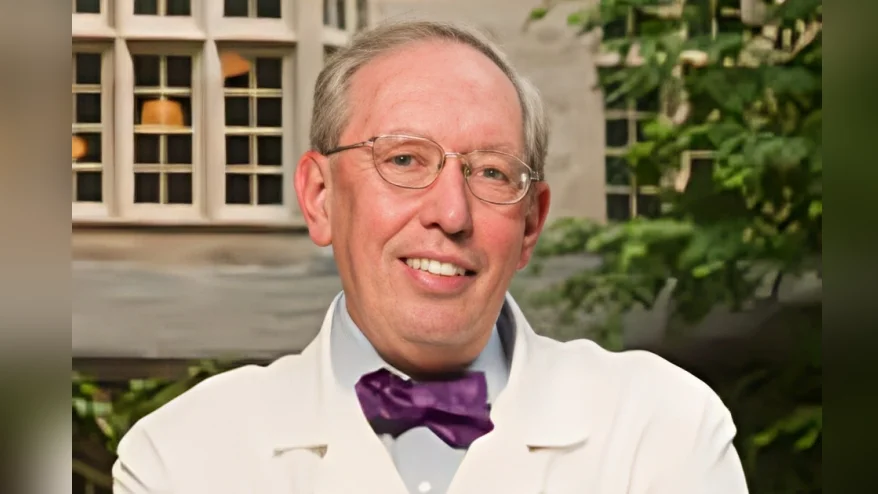Distinguished biochemist Svetlana Mojsov has been named the recipient of the 2026 Kimberly Prize in Biochemistry and Molecular Genetics, according to an announcement from Northwestern University Feinberg School of Medicine and the Simpson Querrey Institute for Epigenetics.
Mojsov, who is the Lulu Chow Wang and Robin Chemers Neustein Research Associate Professor at Rockefeller University in New York, was recognized for her discovery of glucagon-like peptide 1 (GLP-1). GLP-1 is a hormone produced by gut tissue that plays a significant role in insulin secretion and glucose metabolism. Her research led to the development of GLP-1 receptor agonists, such as semaglutide and liraglutide, which are now widely used treatments for diabetes and weight loss.
She will receive a $250,000 prize and deliver a public lecture at the Feinberg campus in Chicago during spring 2026. In addition to her lecture, she will meet with faculty, fellows, and students and attend an award dinner.
“Dr. Mojsov’s legacy of groundbreaking and transformative work is a testament to her dedication and brilliance,” said Dr. Eric G. Neilson, Lewis Landsberg Dean and Vice President for Medical Affairs at Northwestern. “She is an extraordinary scientist whose career in the laboratory has had a profound impact on human heath globally, and we are proud to recognize her with the 2026 Kimberly Prize.”
The Kimberly Prize was established in 2023 by Kimberly Querrey in honor of her late husband Lou Simpson, who was a Northwestern trustee, alumnus, and benefactor. It is currently the largest biochemistry award offered by a university in the United States.
“We are delighted to select Dr. Mojsov as the 2026 Kimberly Prize winner for her pioneering discoveries and contributions on GLP-1. Her studies have transformed our understanding of peptide hormones and laid the foundation for life-changing therapies for type 2 diabetes and obesity,” said Ali Shilatifard, chair of biochemistry and molecular genetics at Northwestern Feinberg School of Medicine, director of the Simpson Querrey Institute for Epigenetics.
“From early peptide synthesis to uncovering GLP-1’s incretin role, her impactful studies bridge fundamental science and clinical medicine. Dr. Mojsov’s legacy exemplifies the complete arc of discovery to global impact, embodying the spirit of the Kimberly Prize in Biochemistry and Molecular Genetics,” Shilatifard added.
“I am especially honored to receive the 2026 Kimberly Prize for my work on the biochemistry and physiology of GLP-1,” Mojsov said.
Mojsov was born in Skopje, North Macedonia. She earned an undergraduate degree from the University of Belgrade before joining Rockefeller University’s laboratory under R. Bruce Merrifield—who later received a Nobel Prize—for doctoral studies focused on peptide synthesis strategies related to glucagon.
During positions at Massachusetts General Hospital and Harvard Medical School, she identified GLP-1 as an incretin hormone with therapeutic potential for type 2 diabetes. Her findings showed that GLP-1 stimulates insulin secretion while lowering blood glucose levels—paving the way for drugs like semaglutide that have significantly changed how diabetes and obesity are treated.
Throughout her career, Mojsov has received several prestigious honors including election to the National Academy of Sciences as well as awards such as Lasker-DeBakey Clinical Medical Research Award; Breakthrough Prize; Pearl Meister Greengard Award; Warren Triennial Prize; Princess of Asturias Award; Tang Prize; VinFuture Prize from Vietnam; BBVA Foundation Frontiers of Knowledge Award.
The Kimberly Prize recognizes scientists whose biochemical research has advanced understanding at a molecular level with direct clinical applications that improve human health. The award is administered through Northwestern's Simpson Querrey Institute for Epigenetics.
Past recipients include Jennifer A. Doudna (University of California Berkeley) for foundational CRISPR/Cas genome editing research; Craig Crews (Yale University) for work on targeted protein degradation therapies; Ron Evans (Salk Institute) for his discovery related to nuclear hormone receptors applied to drug development.
Kimberly Querrey continues supporting basic molecular discoveries at Northwestern aimed toward medical advancement. “Through this prize, we recognize and support individuals who, nationally and internationally, contribute to innovative, leading-edge science,” Shilatifard said. “Kimberly and her late husband Lou have always been great friends in supporting this extraordinary and essential mission of Northwestern University.”

